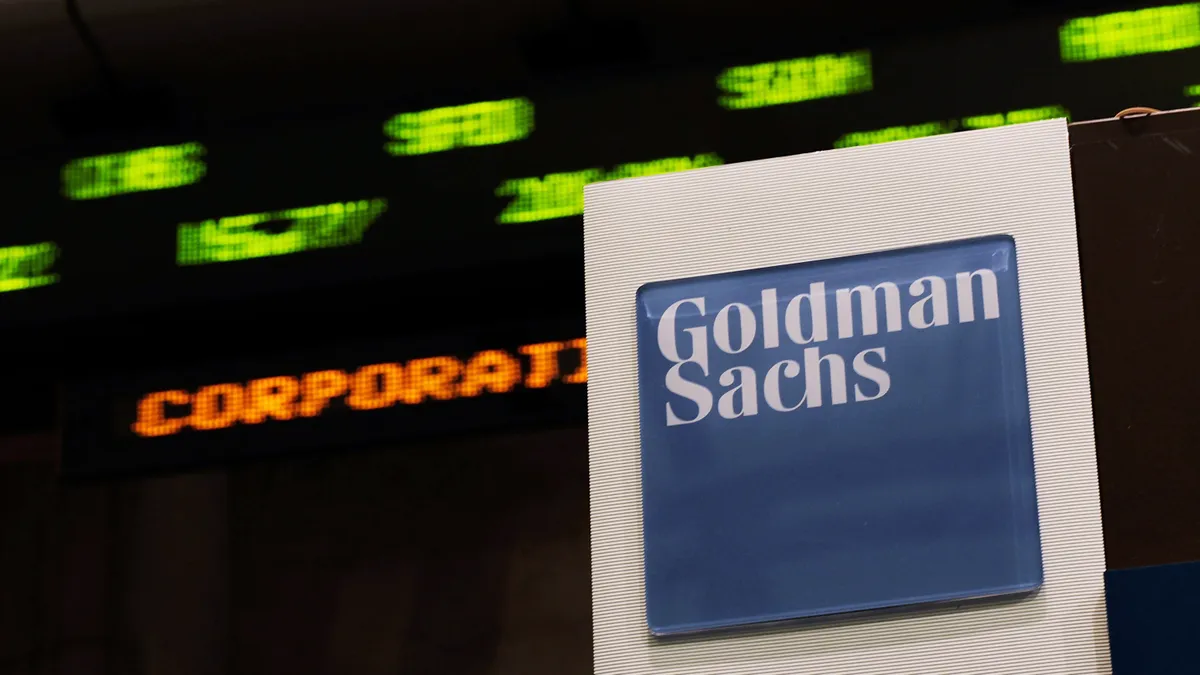If winter is turning to spring, Goldman Sachs’ junior analysts might be getting restless.
The New York Post and Business Insider this week both reported Goldman is electronically monitoring in-office attendance, prompting a handful of the bank’s employees to flag the practice on Blind, a corporate message board that allows users to stay anonymous while verifying their employment through a company email account.
"In our team meeting, [my] manager showed us the Excel where the [managing directors] are tracking which department has not met in-office commitments," one Goldman employee wrote on Blind, according to the Post.
Another wrote, "Apparently they are tracking everyone’s attendance and managers are getting lists of people who have low attendance so they can bully them into coming in."
Goldman Sachs CEO David Solomon has long been among banking’s most vocal advocates for in-office work. Early last year, he expressed frustration at the slow rollout of vaccines and called the mandated remote work of the early COVID era an "aberration."
Personal interaction between employees in the office is a key component to what Solomon called, in Fortune magazine last month, Goldman’s "secret sauce."
"We attract thousands of really extraordinary young people who come to Goldman Sachs to learn to work," Solomon said. "Part of the secret sauce is that they come together and collaborate and work with people that are much more experienced than they are.
"If you break that all down and scatter it around ... you can still get a bunch of work done," Solomon added. "But you start to fray the foundational things that make the place so unique."
Goldman reopened its New York headquarters Feb. 1, with roughly half of the employees based there working from the building, according to Fortune. The bank has since sought to boost that percentage.
An investment banking analyst who talked to Business Insider on condition of anonymity estimated attendance at 200 West Street has risen "to like 70 [percent] to 75%."
Four Goldman staffers told Business Insider the bank is monitoring swipes into and out of its offices as its measure of attendance.
"They're definitely watching the swipes," the investment banking analyst said. "If you aren't in more than three to four times a week, you'll get a call from the business unit leaders reminding you of the expectation to be in the office."
An asset-management analyst told the publication his unit was told, in a meeting, to swipe in between 8 and 10 a.m. or risk being marked absent.
"If you're not in by that time, it doesn't count that you were scanned in for the day," he said. "It definitely is an uneasy feeling."
The analyst told Business Insider a co-worker recently took a job elsewhere after a manager phoned repeatedly over the colleague’s in-office attendance record.
"Nobody wants to be in 5-0 and plenty of companies are willing to allow hybrid/remote," one Blind user — referring to five office days and zero remote — wrote in a comment seen by The New York Post.
It was this time last year that a group of 13 of the bank’s junior analysts presented to their managers a self-survey detailing "inhumane" 100-hour workweeks, deteriorating physical and mental health and a souring outlook for the future.
The employees asked management to cap workweeks at 80 hours and respect the bank’s Saturday policy, which mandates that analysts be out of the office from 9 p.m. Friday to 9 a.m. Sunday. They also sought 12 hours of lead time for requested changes to client presentations.
In the short term, Goldman responded by accelerating the hiring of new junior bankers, moving personnel to overworked departments, reinforcing the Saturday policy and taking a "selective" approach to new business, the Financial Times reported.
But the junior analysts’ slide deck spurred a larger change throughout the banking sphere over the spring and summer, in which several of Goldman’s rivals — and eventually Goldman itself — boosted starting pay to the six-figure threshold and beyond.
The analysts also appeared to have gained Solomon’s respect in coming forward. "In this world of remote work, it feels like we have to be connected 24/7," Solomon said in a voice memo after the slide deck went viral. "All of us — your colleagues, your managers, our divisional leaders — we see that. We’re here to provide support and guidance. This is not easy, and we’re working hard to make it better."
Perhaps the next step to initiate culture change is for the Blind users and Post and Business Insider sources to shed their anonymity.
"We want a workplace where people can share concerns freely," Solomon told Bloomberg after the slide deck surfaced.
Then again, Goldman has reportedly shown itself as not above being petty. The bank has reportedly locked unvested compensation from former executives who left the company and even barred some from company-led alumni events and blocked them from cashing out stock bonuses that had vested and been taxed up to five years earlier, according to Bloomberg.
A Goldman spokesperson declined to comment to the Post. However, a person close to the bank told the publication that worker frustration was not widespread.
"Far from a scientific survey, The Post has chosen a handful of comments submitted to an online forum no one has heard of," the person said.






















